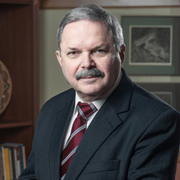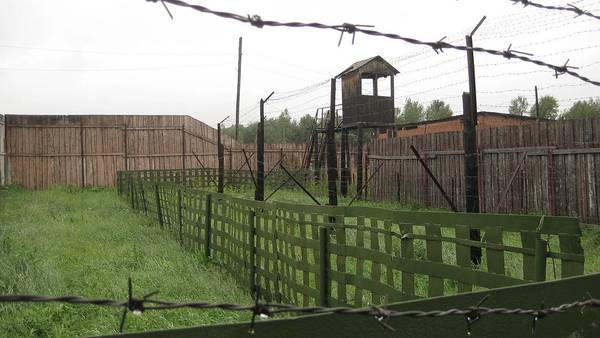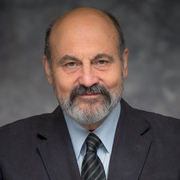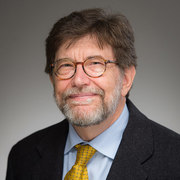

On June 29 and 30, the Nanovic Institute for European Studies will offer the opportunity to hear from Myroslav Marynovych and Tomáš Halík, scholars and activists whose extraordinary experiences of living under communism, resisting the totalitarian state and reflecting deeply on those experiences reveal detailed insights about life behind the iron curtain.
The two are keynote speakers at the three-day virtual conference on “The Trauma of Communism,” happening June 29–July 1. The Nanovic Institute is collaborating on this conference with Catholic universities from Central and Eastern Europe that belong to the Catholic Universities Partnership.
A third keynote address, to be delivered by A. James McAdams, the William M. Scholl Professor of International Affairs at the University of Notre Dame and director of the Nanovic Institute from 2002 to 2018, is scheduled for July 1. The public is invited to attend all three keynote addresses, which will be held on Zoom. Those interested in participating are asked to register here.

The first keynote speaker, Marynovych, will deliver his talk on Tuesday, June 29, at 8:10-9:00 a.m. (ET). In his talk, Marynovych, vice-rector for university mission at the Ukrainian Catholic University in Lviv, will address his personal memories and experience in Ukraine under communism and during and after the transition to democracy.
Marynovych first spoke out against the Soviet regime as a college student in the 1960s. Over the years he has been a human rights activist, journalist, author, religious scholar, member of the Ukrainian Helsinki Group and organizer of the amnesty movement in Ukraine. His activism led to a decade in the Soviet penal system, where he was sentenced to seven years at a Siberian labor camp followed by three years of internal exile in Kazakhstan.

In a 2006 interview, Marynovych told of a group of Lviv students who had recently asked him, “Come on, Mr. Marynovych! Were the Soviet times really so bad?” Appropriate to the theme of this conference, he responded by telling them, “If we don’t talk about the past pain, the next generations will cease to understand us.”
“If we don’t talk about the past pain, the next generations will cease to understand us.” — Myroslav Marynovych
His memoir, “The Universe Behind Barbed Wire: Memoirs of a Ukrainian Soviet Dissident,” was just released in English by the University of Rochester Press. In the book, he writes about his family and early life, the development of the human rights movement in Ukraine and his involvement in it, activities that led to his arrest by the KGB and police, his years in the labor camp and exile, and the meaning he finds now from these life experiences.
In a recent event celebrating the book release hosted by the Institute for Human Sciences in Vienna (IWM), Yale history professor Timothy Snyder, who wrote the volume’s foreword, describes how Marynovych was “punished for wanting to live a normal Ukrainian life” and how, because of the warmth of Marynovych’s writing, particularly in the telling of his early years as a fun-loving dissident, “it’s hard sometimes to see where the fun ends and the seriousness begins.” In explaining why he made the choices he did, Marynovych said:
“Freedom meant for me—and still means for me—to follow the orders or advice of my conscience. Freedom doesn’t mean all permissiveness. Freedom for me is the ability to accept my values, to be attached to these values, and not to change my principles when there is some danger. Many people today would love to live in a moral world. But as soon as some danger comes, people put values aside…. For me, freedom means not giving up when there is some danger [forcing] you to reject [your] values…human dignity, goodness, solidarity in a positive sense and so on. This is freedom for me—to follow my conscience.”
Marynovych’s talk is set for Day 1 of the conference, when the focus is on Ukraine and Georgia. (The regional differences are important, Marynovych said at the book event. For dissidents, in particular, their reasons for resisting the totalitarian state included fighting for cultural rights and national freedom in addition to civic rights.)

On the second day of the conference, Wednesday, June 30, at 11:10 a.m.-12:00 noon (ET), Monsignor Tomáš Halík will present his keynote address, following an earlier panel on Hungary and Poland and a panel on Croatia and Slovakia. In his keynote, Msgr. Halík, professor of sociology of religion at Charles University in Prague, will discuss his direct witness to living a religious life underground in the heart of Europe under communist control that included the 1968 Prague Spring, the occupation of Czechoslovakia, the “flying university,” the 1989 Velvet Revolution, and the difficult transition from a totalitarian communist regime to democracy.
Halík's memoir, “From the Underground Church to Freedom,” was published in English by Notre Dame Press in 2019 and earned the acclaim of reviewers. One such review, in “America,” said, “It is possible that Halík is the most thoughtful, learned and interesting Catholic that is widely unknown in the United States today. Hopefully, this book will right that wrong.”
“It is possible that Halík is the most thoughtful, learned and interesting Catholic that is widely unknown in the United States today. Hopefully, this book will right that wrong.” — Daniel Cosacchi in “America,” on the importance of Halík's memoir
In the introduction to his memoir, Halík writes:
“Why should I tell my story once more now? I am standing on the threshold of old age and am becoming less and less concerned about what others might find interesting in my life. Instead I am starting to be more concerned about what will interest God when I stand before his judgment seat. And at that moment, what matters are the fruits of those years rather than the events of one’s life; in other words, what one has matured into, what conclusions one has reached, what insights one has acquired, what one has learned, and, above all, in what way one has enriched the lives of others.”
Halík, a Catholic priest who was secretly ordained in 1978, worked as a therapist for years under the communist regime, providing training in management psychology to senior managers in the chemical industry and later counseling addicts. Off the clock, however, he taught seminarians, celebrated Mass, offered spiritual direction and worked to build an underground network of scholars and dissidents. Once Czechoslovakia’s communist government was overthrown in 1989, Halík, who was close to Czech President Václav Havel and Pope John Paul II, traveled the globe, lecturing in universities and continuing to make connections with scholars as well as leaders of church and state. With expertise in philosophy, psychology, sociology, theology, and a lifelong appreciation for literature, learning and political life, Halík received the 2015 Templeton Prize for his work to “advance our understanding of, and appreciation for, the insights that science brings to the deepest questions of the universe and humankind’s purpose and place within it.”

McAdams, the final keynote speaker, will deliver his talk on Thursday, July 1, at 8:00-8:50 a.m. (ET). McAdams directed the Nanovic Institute from 2002 to 2018, during which time he spearheaded the creation of the Catholic Universities Partnership (CUP) to support Catholic higher education and civil society in post-Soviet Europe. The CUP currently includes Catholic universities in Croatia, Georgia, Hungary, Poland, Slovakia, and Ukraine, as well as several participating institutions in Western Europe.
“All three of these keynotes will be of interest to anyone curious about the region, the period, or our partner universities,” said Monica Caro, senior associate director of the Nanovic Institute. “We hope that the conference will be an opportunity to learn from witnesses and to share their experiences under communism and Soviet systems.”
This conference is part of a larger research initiative, the Faith and Freedom project, which explores the role of faith-based actors, especially the Catholic Church, in creating and sustaining economic, political and religious freedoms in Central and Eastern Europe after 1989. In addition to the keynote addresses, conference panels will include presentations by students from CUP institutions and will highlight eyewitness accounts of trauma under communism.
“The distinctive feature of this conference is the focus on accounts from eyewitnesses to the transition from communism to democracy,” said Clemens Sedmak, interim director of the Nanovic Institute and professor of social ethics in Notre Dame’s Keough School of Global Affairs. “We want to make sure we capture these memories before it’s too late, of course, but it’s also important for us to hear from witnesses who chose to respond in constructive ways, whether through creating the Catholic University Partnership, as Jim did, or helping to found the Ukrainian Catholic University, as Myroslav did, or providing spiritual guidance, as Tomás has dedicated his life.”
More information about the conference, including the full schedule and links to registration, is available at the “Trauma of Communism” webpage.
Originally published by at nanovic.nd.edu on June 21, 2021.